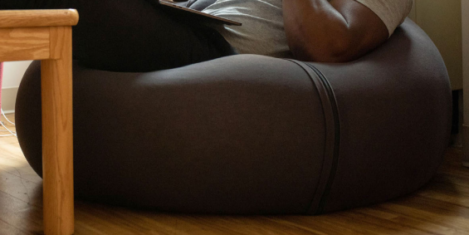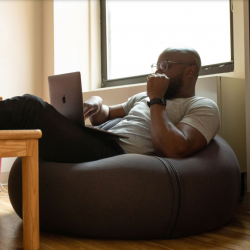To provide the best experiences, we use technologies like cookies to store and/or access device information. Consenting to these technologies will allow us to process data such as browsing behaviour or unique IDs on this site. Not consenting or withdrawing consent, may adversely affect certain features and functions.
The technical storage or access is strictly necessary for the legitimate purpose of enabling the use of a specific service explicitly requested by the subscriber or user, or for the sole purpose of carrying out the transmission of a communication over an electronic communications network.
The technical storage or access is necessary for the legitimate purpose of storing preferences that are not requested by the subscriber or user.
The technical storage or access that is used exclusively for statistical purposes.
The technical storage or access that is used exclusively for anonymous statistical purposes. Without a subpoena, voluntary compliance on the part of your Internet Service Provider, or additional records from a third party, information stored or retrieved for this purpose alone cannot usually be used to identify you.
The technical storage or access is required to create user profiles to send advertising, or to track the user on a website or across several websites for similar marketing purposes.
 Two and a half million Brits are expected to be unemployed this year after the fall out of the pandemic. A concern for many has been how disabled people will fare with the aftermath. The unemployment rate for people with disabilities is more than twice those who are able bodied. (more…)
Two and a half million Brits are expected to be unemployed this year after the fall out of the pandemic. A concern for many has been how disabled people will fare with the aftermath. The unemployment rate for people with disabilities is more than twice those who are able bodied. (more…)






 Investment in digital technology is set to increase UK GDP by £232bn (6.9 percent) in 2040, according to a new
Investment in digital technology is set to increase UK GDP by £232bn (6.9 percent) in 2040, according to a new 
 The impact of the nation’s deteriorating mental health from Covid-19 lockdowns and other restrictions cost UK businesses £14bn last year, according to a study by
The impact of the nation’s deteriorating mental health from Covid-19 lockdowns and other restrictions cost UK businesses £14bn last year, according to a study by 
 The
The 
 The COVID-19 pandemic is driving a fundamental shift in the way companies operate, accelerating the need for an adaptable and agile workforce to drive business success. According to
The COVID-19 pandemic is driving a fundamental shift in the way companies operate, accelerating the need for an adaptable and agile workforce to drive business success. According to 
 Working from home is exacerbating an ‘always on’ culture. Data from a study of UK employees, conducted by virtual team building company
Working from home is exacerbating an ‘always on’ culture. Data from a study of UK employees, conducted by virtual team building company 
 HR leaders are finding it increasingly difficult to quickly find and develop talent with the most in demand skills, yet 58 percent of the workforce needs new skill sets to get their jobs done, according to
HR leaders are finding it increasingly difficult to quickly find and develop talent with the most in demand skills, yet 58 percent of the workforce needs new skill sets to get their jobs done, according to 
 Working together in person has far-ranging benefits on everything from mental health to economic growth according to a new report by
Working together in person has far-ranging benefits on everything from mental health to economic growth according to a new report by 
 How good your line manager is makes the difference between an employee coping or struggling in lockdown. But too often line managers’ heroic efforts are not noticed by their employers, claims new report, titled
How good your line manager is makes the difference between an employee coping or struggling in lockdown. But too often line managers’ heroic efforts are not noticed by their employers, claims new report, titled 
 Outdated attitudes towards technology amongst senior facilities management business leaders are at risk of jeopardising future business survival, claims new research by
Outdated attitudes towards technology amongst senior facilities management business leaders are at risk of jeopardising future business survival, claims new research by 
 The Covid-19 pandemic has had an unprecedented effect on the way in which we work and has brought in to focus the challenges around mental health and wellbeing. The recognition that we are in the midst of the biggest mental health crisis since the Second World War brings the challenge in to stark focus. Time to Talk Day (today) aims to get the nation talking more openly about mental health, and there could not be a better time for it. Research from
The Covid-19 pandemic has had an unprecedented effect on the way in which we work and has brought in to focus the challenges around mental health and wellbeing. The recognition that we are in the midst of the biggest mental health crisis since the Second World War brings the challenge in to stark focus. Time to Talk Day (today) aims to get the nation talking more openly about mental health, and there could not be a better time for it. Research from 







February 11, 2021
The future workplace will only thrive with social and customer experience at its heart
by Sonia Brown • Comment, Workplace design